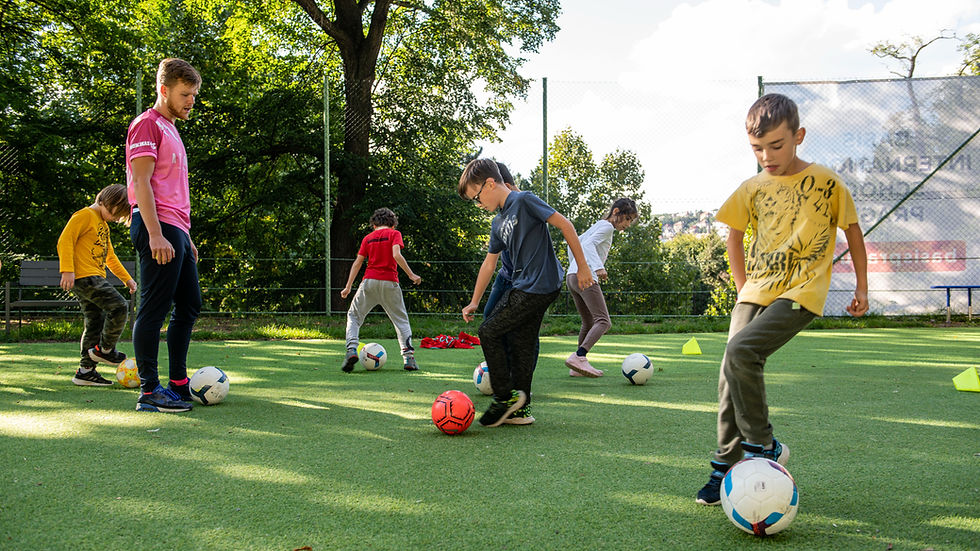BASIS Prague: Why Music is Magic for Young Minds
- zuzanasykorova1
- 30. 10. 2024
- Minut čtení: 2
At BASIS Prague, we believe that musical education is more than just fun – it is a powerful tool for early childhood development.
Music enriches children's academic growth while also nurturing their personal development. From enhancing communication skills and overcoming language barriers to improving motor coordination and breathing, the benefits of music are far-reaching. Whether through singing, dancing, or playing instruments, music helps children develop in ways that go beyond the classroom. With its remarkable ability to shape young minds and bodies, music is a key part of our curriculum – and its impact is truly transformative.

Music Builds Super Memory Have you noticed how kids can memorize song lyrics after hearing them just a few times! That is because music is a fantastic tool for building memory skills. When children sing, play rhythms, or learn melodies, they are training their brains to recall patterns, words, and sounds. These memory “workouts” help them become better learners in every subject.
Focusing Through Music
Music isn't just a fun distraction – it actually teaches focus. When children listen to music or play an instrument, they are practicing concentration. Learning to follow rhythms and grasp other music theory concepts helps children improve their attention span. This enhanced focus extends to other activities, supporting skills like reading, writing, and critical thinking.

A Boost to Language and Literacy
Did you know that music and language are connected in the brain? When children listen to music, they are developing important language skills, like recognizing different sounds. Singing songs introduces new vocabulary, while rhymes help with pronunciation and understanding. These music moments are the first steps toward reading and literacy success.
Music in Action at Our School At BASIS Prague, we bring the benefits of music to life through creative, hands-on activities. In our preschool, children engage in fun songs, connecting gestures and movements to new vocabulary, which boosts comprehension. Rhythm games improve coordination and music-based play keeps learning exciting! In the school, students enjoy daily music classes, where they explore essential concepts like rhythm and notes, strengthening skills in other subjects like math through connections to music theory. As they grow, older children also have the opportunity to begin learning musical instruments, adding even more depth to their musical education.
How You Can Bring Music Home You can help your child's cognitive growth at home with simple musical activities. Sing songs together, try out simple instruments, or just play various kinds of music and let your child explore the sounds. While being excellent opportunities to spend quality time with your little ones, these moments also built important skills.
Sources:
Dumont, Elisabeth, et al. “Music Interventions and Child Development: A Critical Review and Further Directions.” Frontiers in Psychology, vol. 8, no. 1694, 29 Sept. 2017, www.ncbi.nlm.nih.gov/pmc/articles/PMC5626863/, ttps://doi.org/10.3389/fpsyg.2017.01694.
Said, Paula Martins, and Dagma Venturini Marques Abramides. “Effect of Music Education on the Promotion of School Performance in Children.” CoDAS, vol. 32, 10 Feb. 2020, p. e20180144, www.scielo.br/j/codas/a/gvpgHP9NHxLCdt3jZGW5Y9h/?lang=en.


